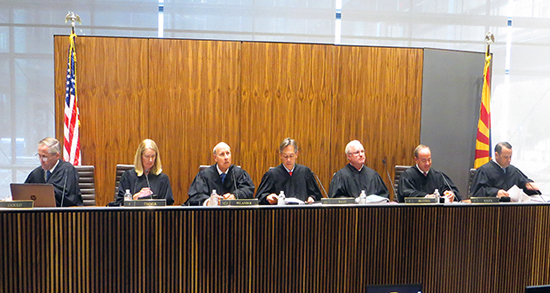
By Howard Fischer | Capitol Media Services via Arizona Capitol Times
The question of whether cities can decide what to do with seized and forfeited guns — and a lot of other issues — could end up being decided based on how extensive the Arizona Supreme Court believes is the right of local governments to make their own laws.
During nearly an hour of arguments Tuesday, the justices peppered attorneys with questions ranging from whether they should even intercede in the dispute between Attorney General Mark Brnovich and the City of Tucson over its gun-destruction ordinance to the constitutionality of a 2016 law that Brnovich says gives him the power to withhold money from cities that enact local laws that he concludes run afoul of state statutes.
But Rick Rollman, representing the city, told the justices the issue is simpler than all that.











